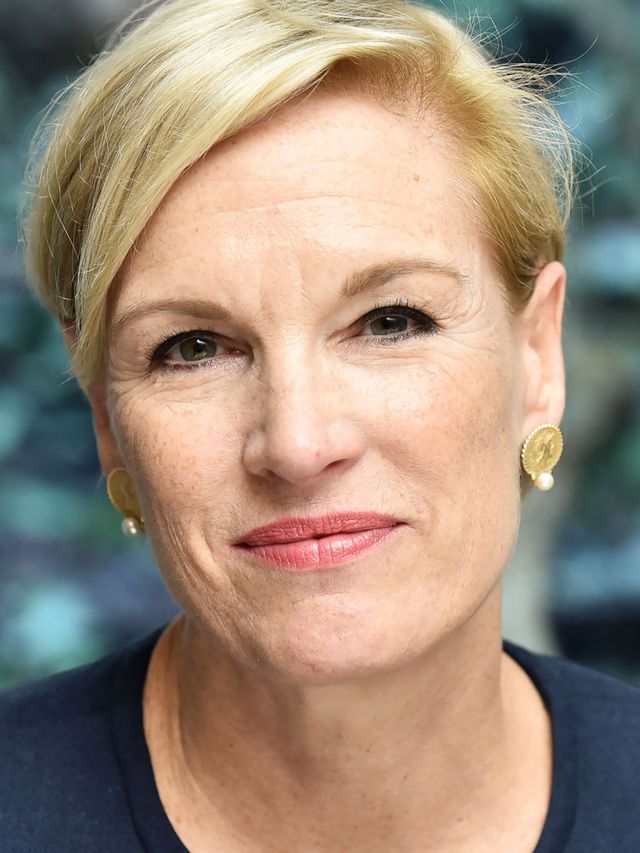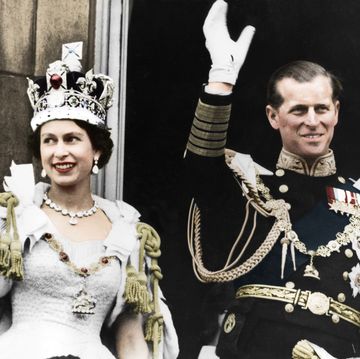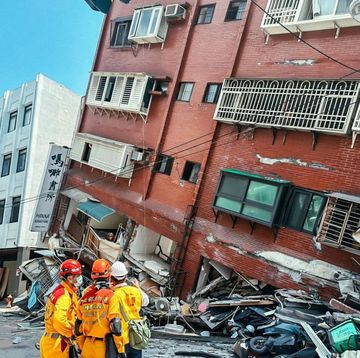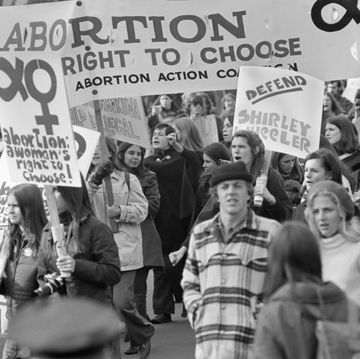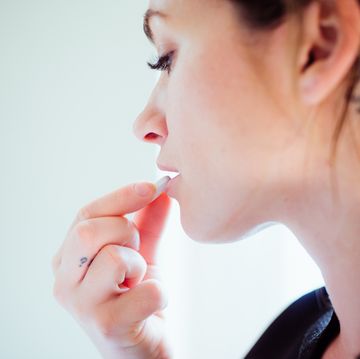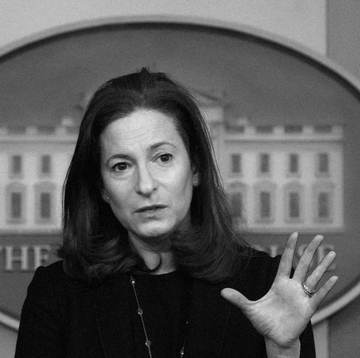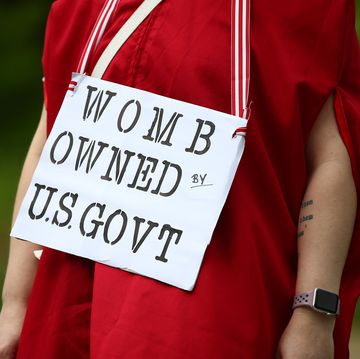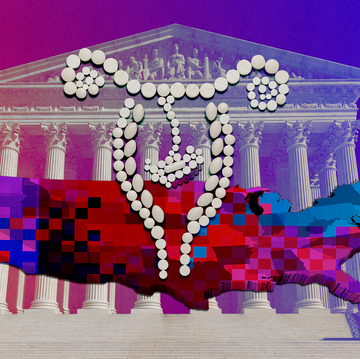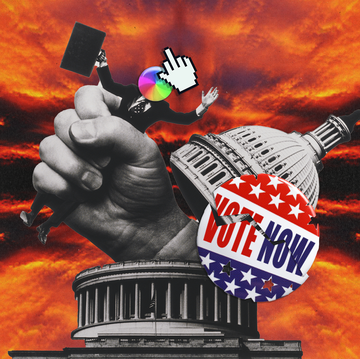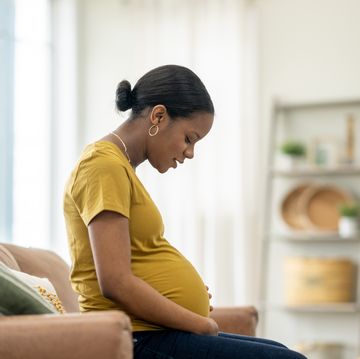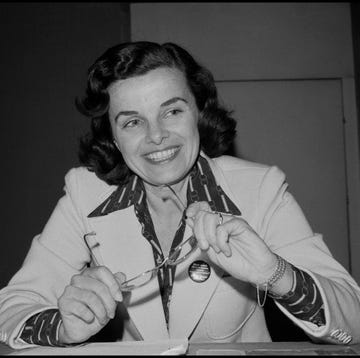The end of Donald Trump’s first 100 days as president of the United States is fast approaching. Despite Trump's many declarations on the campaign trail indicating he would take swift action if elected president, a number of initiatives taken by the Trump administration and Congress have not moved forward, including an attempt to “repeal and replace” the ACA, a travel ban on residents of Muslim-majority countries, and the creation of a wall that Mexico will “eventually” pay for “in some form.”
Yet it’s undeniable that the Trump administration has taken concrete actions that affect the health of women in this country and around the world, including reinstating and expanding the global gag rule, a policy that bans foreign aid to health organizations who discuss abortion as a method of family-planning, and allowing states to withhold Medicaid reimbursements from Planned Parenthood and other clinics that perform abortions (despite the fact that no federal funds go toward abortions under the Hyde Amendment). Here, Cecile Richards, president of Planned Parenthood Federation of America and Planned Parenthood Action Fund, weighs in on the first three months of the Trump administration and where American women go from here.
I wanted to start with some comments that Tom Perez and Bernie Sanders made last week. Tom Perez ultimately said that Democrats should support women’s right to choose, but that was after he had said that, you know, you can’t “demand fealty on every single issue.” And Bernie Sanders also made comments that were indicating that women’s right to choose is not necessarily a must for Democrats. Do these comments make you wonder about their commitment to, or even their understanding of, the issue? And were you satisfied ultimately with Tom Perez’s statement?
I spoke to both of them actually at length, and expressed not only my personal point of view, but our point of view at Planned Parenthood, which is women’s basic right to make their own decision about their pregnancies and about their reproductive health care is fundamental, and it shouldn’t matter what state women live in. I believe ultimately that’s where both of them agreed, but I just think it’s a reminder of how important it is that women are engaged in the public policy and in the political process. Frankly, if we had more women in office, l think a lot of these issues we wouldn’t be still fighting over. Recent polls show that the support for Planned Parenthood really transcends party lines. So does the support for access to safe and legal abortions, access to birth control. I think for most women in America, they can’t figure out why this is still being used — women’s rights and women’s health care — as a partisan political issue.
Reproductive rights activists argue that abortions rights is an economic issue.
It is an economic issue, right. There was a beautiful piece in the New York Times yesterday that really summed it up.
Yeah, that you tweeted! But a lot of people still view it as a social issue. Why do you think that is?
Well, some people view it as a social issue, but for women, it is an economic issue, and they understand that. And some people view birth control as a social issue, and as I say, it’s only a social issue if you’ve never had to pay for it. I’m glad we’re talking about this now and understanding you can’t separate out an economic agenda for women without including their rights to make one of the most fundamental economic decisions they’ll ever make in their lifetime, which is whether they’re going to have children. Study after study show that women are quite rational about these decisions. They think carefully about the number of children they can support and the economic obligations as a parent. I wish Congress would think more about this. It’s really been so distressing to see this Congress that supposedly — the leadership calls themselves “pro-family” — and yet they’re ending not only access to Planned Parenthood, they’re ending access to birth control for millions of women. Now, they’re threatening to take away maternity benefits for women. Women understand that these are all connected and to have the right to make these decisions doesn’t mean a lot if you can’t get access to health care. I hope there is a potential for some more awareness among people who are in office, including men.
Donald Trump has called his daughter his “guide” on women’s health issues, and you met with her a little after the election. You’ve said that she should be held accountable in her new role in terms of responding to attacks on women’s health. Are there any signs that indicate that she will be an ally to women’s rights?
So, I have spoken to her about — and I’ll speak to anyone — about what Planned Parenthood does, about the 2 1/2 million patients we see and about the devastating impact it would have on millions of folks around this country if they were blocked from going to Planned Parenthood for health care. She now works for the federal government. She’s one of the highest-ranking women in the White House. Her portfolio is women’s issues — or, it includes all women’s issues. So this is her job. And for the first three months of this administration, women have seen an unrelenting attack on every fundamental right that we’ve achieved, and particularly that we’ve achieved over the last eight years in getting equity and health-care access. So, yes, it’s a responsibility of everyone in this White House. And words don’t matter. What women want to see is what’s the action. And so this woman has a lot of responsibility now, and she has a responsibility of women all around this country — you can’t talk about childcare or entrepreneurism and take women off of health-care benefits, deny their access to Planned Parenthood, deny their access to maternity benefits, charge them more for health insurance coverage.
This interesting poll came out right around the time of the election that half of President Trump's own voters — and in recent polls, I've seen even higher than that — support federal funding for Planned Parenthood. Many of them are our patients because I think one of the things that it would be important for him to understand and this White House understand is that women don't come to us to make a political statement. They come because they need access to high-quality, affordable health care. I was just in Paul Ryan's own district where we have three health centers that provide preventive services to women. Women in those districts, in Kenosha, Wisconsin, would lose access to cancer screenings and birth control if the White House and the Republican-led Congress is successful in repealing these benefits. So, that's a long way of saying not only Ivanka Trump but everyone who works for this administration has a decision to make here about whether they're going to stand on the side of women and allow women to move forward in this country and this economy, or whether they're going to roll back years of progress.
President Trump was elected saying he wanted to create jobs and rebuild our economy. You cannot do that and leave half of the economy behind and so, fundamentally, his promises to the country are at odds with what they are trying to do to roll back women's access to health care and opportunities to plan their families.
Ivanka Trump spoke at the G20 women's summit and she was booed when she said her father is "a tremendous champion of supporting families and enabling them to thrive." But there has also been this conversation that’s sort of like, She is her father's daughter. How can she publicly condemn him? What are your thoughts on that argument?
Her being his daughter is actually now irrelevant. She actually works for the federal government. She's now an employee for all of us. She chose that role. So now, if she's not comfortable standing up for what she believes in for women, then she perhaps needs to think about that. This isn't a personality thing. Millions of women's lives are at stake, in this country and around the globe. The first act this president took the first day in office was to repeal maternal and child health benefits for women around the world, to end access to HIV and Zika screening for women. Women around the world are going to be impacted by the decisions that this president has already made, and anyone who works for him and takes a job in this government should be held accountable. That's what a democracy is about is. It's not a popularity contest. It's about electing people who have responsibility for people's lives, and this White House has made the most aggressive attacks against women and women's health and rights of any White House we've seen in decades. So far I'd say the report card, if women are assessing the first 100 days of this president, it's been a big zero and with enormous anxiety all across the country for women about what their future looks like and what their future opportunities will be.
The Justice Department recently asked for an additional 60 days to negotiate with religious organizations that are suing an Obamacare mandate that requires employers to provide birth control to their employees. Does that give you any sense of hope? It seems to go against a campaign promise that Trump had made to lift the mandate.
I think we'll have to see. Look, there was no denying that the birth control benefit that we fought very hard to get, 55 million women now have it in this country. And we're actually at a historic all-time low for teenage pregnancy, a 30-year low for unintended pregnancy. But we can't continue that progress if women don't— it's not only having a benefit in your insurance plan. If then you deny the largest family-planning provider in the country to be able to continue to see women, it's kind of a false promise. And we're the major provider under the Title X family planning provider in this country, and for many areas of the country, we're women's only health-care option for family planning. Obviously we're hopeful. We will work with the Justice Department and anyone else who’s willing to stand up for women's access to health care. But I don't want to assume anything yet.
As someone who has a lot of experience organizing, what do you think have been the strengths and weaknesses of the women’s movement that has arisen in the past couple months? And what advice do you give to women who want to fight against Trump’s agenda?
I’ve been an organizer really my entire lifetime, and I've never seen this kind of organic organizing happening all around the country — and everything from women who've been marching their entire lives, who remember before there was a women's movement, to young women and young men who've never participated in anything political or advocacy-related. So that gives me enormous hope. These are the largest marches in the history of this country, and they weren't only in Washington and New York, they were in Utah and Arizona and, you know, everywhere in between.
Antarctica.
Antarctica. Exactly. All the continents. Women historically just do what needs doing. And since the marches, of course, women have been the overwhelming majority of people calling Congress. They've been showing up at town hall meetings. They've been speaking up and speaking out. Every day, I get another letter from someone who's created a new T-shirt, or they're doing something on Etsy, or they're self-creating. They're using their own ideas and energy to build a movement. Ultimately though, I think all of this has to lead to people voting, and I hope that the energy that we're seeing now translates into voter participation because I think women in particular have to hold our elected officials accountable for what they do to support women and women's families. And right now, the record of this Congress is really, really bad. I think the movement won't be complete unless we actually make sure that women are registered, and they go and vote, and that they run for office.
Follow Heeseung on Twitter.
